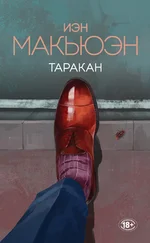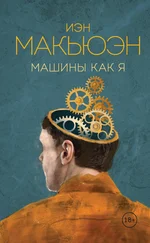There are some decisions, even moral ones, that are formed in regions below conscious thought. I found myself jogging towards the playground’s fence, stepping over it, taking three paces and putting a hand on the woman’s shoulder.
I said, ‘Excuse me. Please. Please don’t do that.’
My voice sounded prissy in my ears, privileged, apologetic, lacking all authority. I was already doubting where this could lead. Not to a future of reformed, kindly parenting. But at least, as she turned towards me in disbelief, her assault had ceased.
‘What was that?’
‘He’s just little,’ I said stupidly. ‘You could do him serious harm.’
‘Who the fuck are you?’
It was the right question and for that reason I didn’t answer it. ‘He’s too little to understand you.’
This conversation was proceeding over the child’s screams. Now he clutched at his mother’s skirts, wanting to be picked up. This was the worst of it. His tormentor was also his only comfort. She was squaring up to me. The dropped cigarette smouldered by her foot. Her right hand clenched and unclenched. Trying to appear not to, I took a vague half-step back. We were staring each other out. It was, or had been, a rather lovely, intelligent face, its obvious beauty marred by weight-gain plumping up the flesh round her eyes, narrowing them into a look of suspicion. In another life it could have been a kindly, maternal face. Rounded, high cheekbones, a slew of freckles across the bridge of her nose, full lips – though the lower was split. After several seconds, I noticed that her pupils were pinpricks. She was the first to shift her gaze. She was looking over my shoulder and then I found out why.
She yelled, ‘Oi, John.’
I turned. Her friend or husband, John, also plump, naked from the waist, bright pink from a bout in the sun, was on his way through the playground’s wire gate.
Still several yards away he called, ‘He bothering you?’
‘Fucking right.’
In some other sector of all imagined possibilities – the cinematic would be one – I needn’t have worried. John was about my age, but shorter, flabbier, less fit, less strong. In that other world, if he’d struck me, I could have floored him. But in this world, I’d never hit another person in my life, not even in childhood. I could have told myself that if I knocked the father down the child would suffer all the more. But that wasn’t it. I had the wrong attitude, or rather, I lacked the right one. It wasn’t fear, it certainly wasn’t lofty principle. When it came to hitting people, I didn’t know where to begin. I didn’t want to know.
‘Oh yeah?’
Now John was squaring up to me, the woman having stepped back. The boy continued to wail. Father and son were comically alike – both crop-haired, ginger-blond, with small faces and wide-apart green eyes.
‘With all respect, he’s just little. He shouldn’t be hit or shaken.’
‘With all respect, you can fuck off out of it. Or else.’
And John did look ready to hit me. His chest was puffed out, the ancient self-enlargement ploy of toads and apes and many others. His breathing was rapid and his arms hung well clear of his torso. I may have been stronger, but he would be more reckless. Less to lose. Or this was what bravery was. Being ready to take a chance on not getting felled and your head lifted and slammed down on the tarmac many times, with lifelong neural consequences. A chance I wouldn’t take. This was what cowardice was, a surfeit of imagining.
I raised both hands in a gesture of surrender. ‘Look. I can’t make you do anything, obviously. I can only hope to persuade you. For the little boy’s benefit.’
Then John said something so surprising that I was completely outflanked and for a moment could hardly reply.
‘Do you want him?’
‘What?’
‘You can have him. Go on. You’re an expert on kids. He’s yours. Take him home with you.’
The child had gone quiet by this point. Looking at him again, I thought he had something his father lacked, though perhaps not his mother – a faint but still luminous signal in his expression of intelligent engagement, despite his distress. We stood in a tight little group. From far across the Common we heard, above the traffic, the distant shouts of children by the paddling pool.
On an impulse, I called the father’s bluff. ‘All right,’ I said. ‘He can come and live with me. We’ll sort out the paperwork later.’
I took a card from my wallet and gave it to him. Then I put my hand out to the boy and to my surprise he raised his and slotted his fingers between mine. I felt flattered. ‘What’s his name?’
‘Mark.’
‘Come on Mark.’
Together we walked away from his parents, across the playground to the spring-hinged gate.
The little boy said in a loud whisper, ‘Let’s pretend to run away.’ His upturned face was suddenly alive with humour and mischief.
‘OK.’
‘On a boat.’
‘All right.’
I was about to open the gate when there was a shout behind me. I turned, hoping that my relief didn’t show. The woman came running at me, pulled the boy away and swung at me with an open hand. The blow fell harmlessly against my upper arm.
‘Pervert!’
She was ready to take another swing when John called out in a weary tone. ‘Leave it.’
I let myself out and walked a little way before stopping to look back. John was hoisting Mark onto his raw shoulders. I had to admire the father. There may have been wit in his methods which I’d failed to notice. He had got rid of me without a fight by making an impossible offer. What a nightmare, to drag the boy back to my tiny place, introduce him to Miranda, then see to his needs for the next fifteen years. I noticed that the woman had a black ribbon tied to the arm of her coat. She was trying to persuade John to take his shirt. He was ignoring her. As the family crossed the playground, Mark turned in my direction and raised an arm, perhaps to maintain his balance, perhaps in farewell.
*
In our side-by-side conversations in bed, often in the early hours, a figure presided whose form was becoming clearer as he hovered before us in the darkness, an unfortunate ghost. I had to overcome an initial impulse to regard him as a rival, hostile to my very existence. I looked him up online and saw his face through time, from early twenties to mid-fifties, evolving from girlishly handsome to appealingly ruined. I read his press, which was not extensive. His name meant nothing to me. A couple of my friends knew of him but had never read him. A profile, five years old, dismissed him as ‘an almost-man’. Since the phrase described one of my own possible fates, I warmed a little to Maxfield Blacke, and understood the obvious – that to love the daughter would be to embrace the father. Whenever she returned from Salisbury, she needed to talk about him. I learned about his different pains, or agonies, the shifting prognoses, the arrogant, ignorant doctor followed by the kind and brilliant doctor, the chaotic hospital with surprisingly good food, the treatments and medications, the fresh hopes abandoned then restored. His mind, she found countless ways of saying, remained sharp. It was his body that had turned against him, against itself, with the ferocity of a civil war. How it hurt the daughter to see the writer’s tongue disfigured by ugly black spots. How it hurt the father to eat, to swallow, to speak. His immune system was letting or taking him down.
There was more. He passed a large kidney stone, as excruciating, Miranda believed, as natural childbirth. He broke a hip on the bathroom floor. His skin itched intolerably. Now he had gout in the joints of both thumbs. Reading, his passion, was made difficult as cataracts clouded his vision. The operation was ahead of him, though he hated and feared anyone messing with his eyes. There may have been other afflictions too humiliating to recount. The woman he should have asked long ago to be his fourth wife had walked out two years ago. Maxfield was alone, dependent on health visitors, strangers, and on his daughter, ninety miles distant. His two sons by another marriage sometimes travelled from London, bringing presents of wine, cheese, biographies, the latest wristwatch computer. But they were squeamish about their father’s intimate care.
Читать дальше
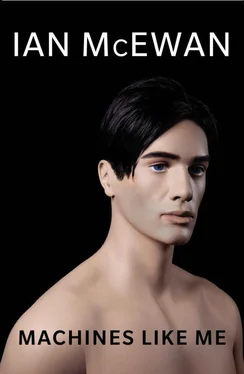
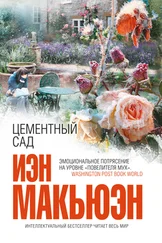
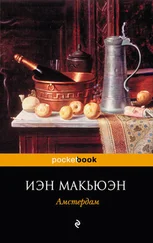
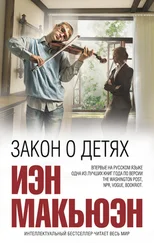
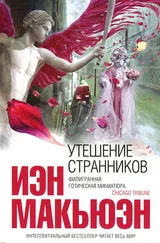
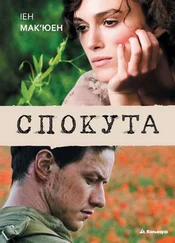
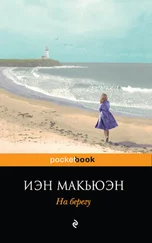
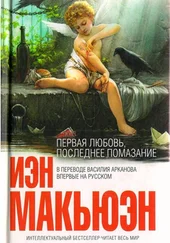
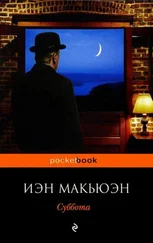
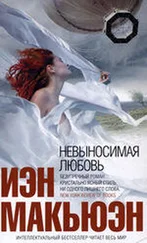
![Иэн Макьюэн - Таракан [litres]](/books/435106/ien-makyuen-tarakan-litres-thumb.webp)
